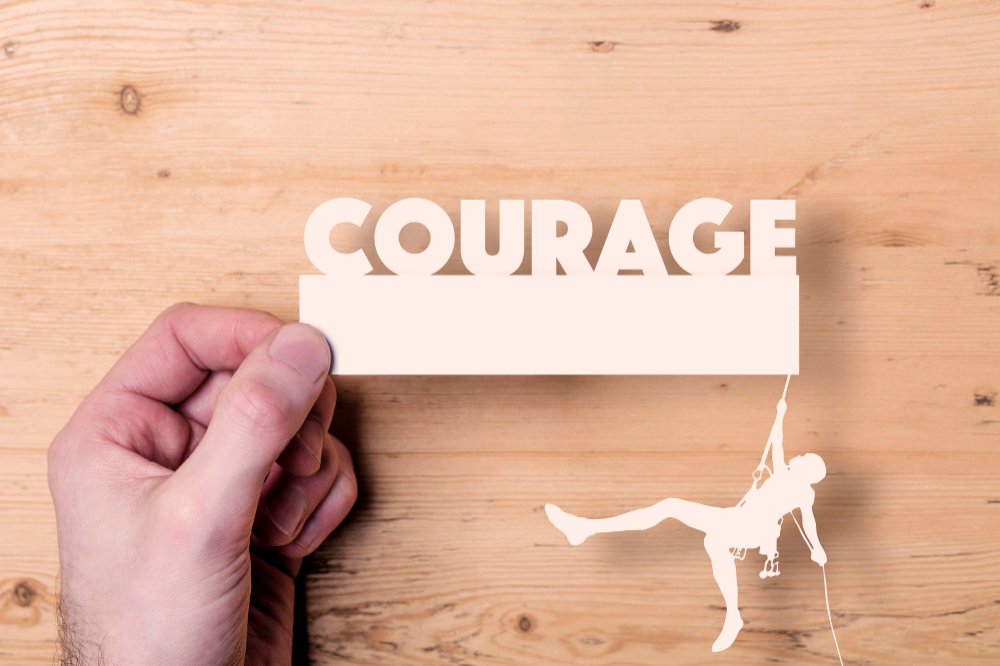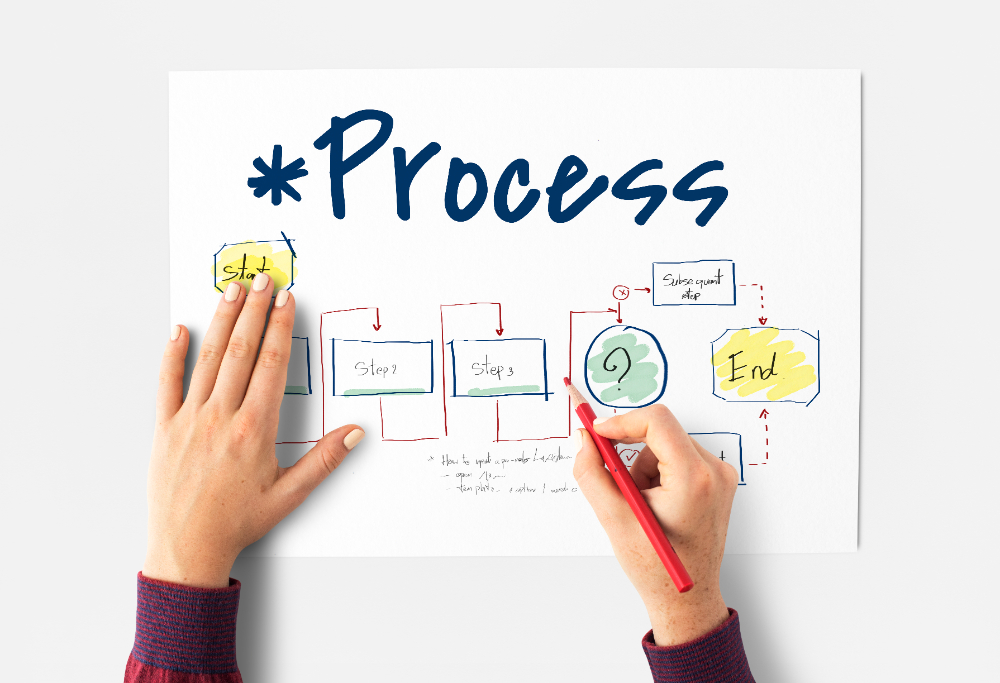Table of Contents
- Defining Self-Discipline
- The Psychology Behind Self-Discipline
- Strategies for Developing Self-Discipline
- Overcoming Challenges and Obstacles
- Dealing with Procrastination
- Managing Distractions and Temptations
- Handling Setbacks and Failures
- Cultivating Resilience and Perseverance
- Implementing Self-Discipline in Various Areas of Life
- Self-Discipline in Personal Finance
- Self-Discipline in Health and Fitness
- Self-Discipline in Career and Professional Development
- Self-Discipline in Relationships and Communication
- Tools and Resources for Enhancing Self-Discipline
- Productivity Apps and Tools
- Books and Literature on Self-Discipline
- Online Courses and Workshops
- Accountability Partners and Mentors
- In Conclusion
Have you ever wondered what makes some people super successful while others struggle to even get started on their goals? Well, it often boils down to one critical ingredient: self-discipline.
Now, don't let the word scare you off. Self-discipline is just a fancy term for something we all have within us – the ability to stick to our plans and stay focused even when things get tough.
In this blog post, we're going to dive into the essence of self-discipline and uncover the secrets to making it work for you. Whether you're aiming to crush your career goals, get in shape, or finally get your finances in order, self-discipline is the key that can unlock your potential.
Defining Self-Discipline
Okay, let's break it down. What exactly is self-discipline? Well, think of it as your superpower for achieving anything you set your mind to. It's the ability to resist short-term temptations in pursuit of long-term goals.
Imagine you have a big project due, but there's a new episode of your favorite show calling your name. Self-discipline is what helps you say, "Not now, Netflix, I've got work to do!"
It's about making the tough choices that will benefit you in the long run, even if they're not always the most fun in the moment.
Now, self-discipline isn't just about forcing yourself to do things you don't want to do. It's also about creating habits and routines that support your goals, making it easier to stay on track.
The Psychology Behind Self-Discipline
Now that we've got a handle on what self-discipline is, let's dive into the fascinating world of its psychology. Trust me, it's more interesting than it sounds!
First off, let's talk about willpower. You know that feeling when you're trying to resist temptation, like saying no to that second slice of cake? That's your willpower at work. It's like a muscle – the more you use it, the stronger it gets. But just like a muscle, it can also get tired if you overdo it.
Then there's motivation. Ever notice how some days you're on fire, ready to tackle anything that comes your way, while other days you can barely muster the energy to get out of bed? That's motivation for you. It's like fuel for your self-discipline engine – when it's running high, you're unstoppable, but when it's low, even the smallest tasks can feel impossible.
But here's the thing – self-discipline isn't just about willpower and motivation. It's also about the way we think and process information. Our brains are wired to seek out pleasure and avoid pain, which can make sticking to our goals a real challenge.
That's where cognitive processes come into play. By understanding how our brains work, we can learn to override those impulses and make decisions that serve our long-term interests.
So, the next time you find yourself struggling to stay disciplined, remember – it's not just a matter of sheer willpower. It's about understanding the psychology behind your actions and finding strategies to outsmart your own brain.
Strategies for Developing Self-Discipline
Now that we have a grasp of the psychology behind self-discipline, let's dive into some practical strategies you can use to develop and strengthen this invaluable skill. Remember, like any skill, self-discipline takes practice, so don't worry if you don't master it overnight.
Set Clear and Achievable Goals: The first step in cultivating self-discipline is knowing what you're working towards. Set specific, measurable, and realistic goals that align with your values and aspirations. Break them down into smaller, manageable tasks to make them less daunting.
Create Effective Routines and Habits: Habits are the building blocks of self-discipline. By establishing consistent routines, you reduce the need for willpower and make it easier to stay on track. Start small and gradually incorporate new habits into your daily life.
Utilize Time Management Techniques: Time is a precious resource, and managing it effectively is key to staying disciplined. Use techniques like the Pomodoro Technique or time-blocking to structure your day and prioritize tasks. Avoid multitasking, as it can lead to decreased productivity and increased stress.
Practice Mindfulness and Self-Awareness: Being mindful of your thoughts, feelings, and behaviors can help you identify potential obstacles to self-discipline. Notice when you're tempted to stray from your goals and consciously redirect your focus. Cultivate self-awareness through practices like meditation or journaling.
Build a Support System: Surround yourself with people who support your goals and encourage your growth. Share your aspirations with friends, family, or a mentor who can hold you accountable and provide guidance when needed. Remember, you don't have to go it alone.
Overcoming Challenges and Obstacles
As you embark on your journey to develop self-discipline, it's important to anticipate and prepare for the challenges and obstacles that may arise along the way. Here are some common hurdles you may encounter, along with strategies for overcoming them:
Dealing with Procrastination
Procrastination is the arch-nemesis of self-discipline. It's that voice in your head that tells you it's okay to put off tasks until later. To overcome procrastination, break tasks into smaller, more manageable steps, set deadlines for yourself, and create a conducive work environment that minimizes distractions.
Managing Distractions and Temptations
In today's hyper-connected world, distractions are everywhere, from social media notifications to the allure of Netflix. Practice self-control by limiting your exposure to distractions, setting boundaries around your time and attention, and using tools like website blockers or productivity apps to stay focused.
Handling Setbacks and Failures
Nobody's perfect, and setbacks are a natural part of the journey towards self-discipline. Instead of beating yourself up over failures, use them as opportunities for growth and learning. Reflect on what went wrong, adjust your approach if necessary, and keep moving forward with renewed determination.
Cultivating Resilience and Perseverance
Building self-discipline requires resilience – the ability to bounce back from adversity and keep going in the face of challenges. Cultivate resilience by developing a growth mindset, practicing self-compassion, and seeking support from others during tough times. Remember, every setback is a chance to strengthen your resilience muscle.
Implementing Self-Discipline in Various Areas of Life
Self-discipline isn't just a one-size-fits-all skill – it's incredibly versatile and can be applied to all areas of your life. Let's explore how you can implement self-discipline in different domains:
Self-Discipline in Personal Finance
Take charge of your financial future by practicing disciplined spending and saving habits. Create a budget and stick to it, avoid impulse purchases, and prioritize long-term financial goals over short-term gratification. Delaying instant gratification for future financial security is the epitome of self-discipline.
Self-Discipline in Health and Fitness
Commit to a regular exercise routine and nutritious diet, even when you don't feel like it. Set realistic fitness goals and hold yourself accountable for achieving them. Learn to say no to unhealthy temptations and prioritizing your physical well-being.
Self-Discipline in Career and Professional Development
Excel in your career by demonstrating self-discipline in your work habits and professional relationships. Set ambitious career goals and take consistent, purposeful action to achieve them.
Train yourself to manage your time effectively, meet deadlines, and continuously seek opportunities for growth and improvement.
Self-Discipline in Relationships and Communication
Cultivate healthy, fulfilling relationships by practicing self-discipline in your interactions with others. Listen actively, communicate honestly and respectfully, and prioritize the needs of your loved ones.
Practice self-discipline by setting boundaries, managing conflicts constructively, and investing time and effort into nurturing meaningful connections.
Tools and Resources for Enhancing Self-Discipline
In your journey to strengthen your self-discipline, it's helpful to have the right tools and resources at your disposal. Here are some invaluable aids to enhance your self-discipline:
Productivity Apps and Tools
Leverage technology to your advantage with productivity apps and tools designed to keep you organized, focused, and on track.
From task management apps like Todoist and Trello to time-tracking tools like Toggl and RescueTime, there's no shortage of resources to help you streamline your workflow and maximize your productivity.
Books and Literature on Self-Discipline
Dive into the wealth of knowledge available in books and literature dedicated to the art of self-discipline.
Explore classics like "The Power of Habit" by Charles Duhigg and "Atomic Habits" by James Clear, as well as timeless wisdom from authors like Stephen Covey and Brian Tracy.
These resources offer invaluable insights and practical strategies for mastering self-discipline in all areas of life.
Online Courses and Workshops
Enroll in online courses and workshops focused on developing self-discipline and personal effectiveness. Platforms like Coursera, Udemy, and Skillshare offer a wide range of courses covering topics such as time management, habit formation, and goal setting.
Invest in your personal development and acquire new skills to enhance your self-discipline toolkit.
Accountability Partners and Mentors
Surround yourself with accountability partners and mentors who can provide guidance, support, and encouragement on your journey to self-discipline.
Whether it's a trusted friend, family member, or professional coach, having someone to hold you accountable and provide feedback can make a world of difference in staying disciplined and focused on your goals.
In Conclusion
Remember, self-discipline isn't just about forcing yourself to do things you don't want to do – it's about making conscious choices that align with your long-term goals and values.
By understanding the psychology behind self-discipline and implementing proven strategies, you can unlock your full potential and achieve extraordinary success in all areas of your life.
So, as you go forth on your quest to master self-discipline, keep these key principles in mind: set clear and achievable goals, cultivate effective habits and routines, overcome challenges with resilience and perseverance, and leverage tools and resources to support your journey.
Your future self will thank you for it!

































Comments are closed.